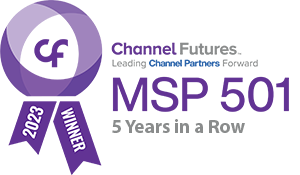Technology has unquestionably altered virtually every facet of our lives. Each of these aspects–including when we wake up with morning alarms, communication methods, how we shop for ingredients for our recipes, and how we travel–has been impacted by the adoption of technology. Technological advances have made life easier for all of us. One area where these advantages have been particularly beneficial is in healthcare (medical technology).
Technology can, and should, play a vital role in health. In fact, when used effectively, technology can become a major driver for health innovation. Some of the reasons why technology is such an important part of healthcare today are:
The efficiency of real-time record accessible at any time
Nearly all medical records are now electronically available via the cloud, secure shared network, and a variety of digital devices, so there’s no need to “check out” the chart from the chart room anymore. It is now possible to act on critical patient data in ways that would have been impossible without EHRs and other platforms’ comprehensive, real-time data along with communication features, safety alerts, reporting capabilities, and remote access.
Significant clinical data for analysis and treatment
Technology generates a large amount of data that can be used in the management of patient care. The Internet is used to automatically update pacemakers and stents. Some gadgets allow patients’ weight and blood glucose levels to be transmitted. Wearables transmit data on one’s sleep and exercise patterns.
There is also an increase in the amount of Big Data being used to produce reports and analytics that look for population trends and gaps in care management. By combining analytics with technology, it is now possible to identify best practices for improving outcomes on both a clinical and economic level. No doubt collecting and integrating all of this data is making it possible to provide patients with better, more individualized care. But until reimbursement, liability, and capacity issues are resolved, the data flood could be a double-edged sword for clinicians.
Improved medication safety
Because of technological advances, clinicians are now warned before prescribing drugs that could interact with one another or to which a patient has an allergic reaction. Technology has replaced books and human memory with automated safeguards that save lives, from CPOE systems (computerized physician order entry) to EHR alerting features.
Higher quality communication and connectivity
Technology has also made it possible for physicians and care managers to communicate with patients between doctor visits and after hospital discharge. For instance, some apps send automated reminders that ask patients to answer questions after surgery or during healing, and algorithm-driven alerts identify patients at risk for hospital readmission or infection. Patient portals give patients online access to their medical records and medication histories and provide features such as registration, online scheduling, and bill payment. And telehealth platforms allow clinicians to conduct post-op visits, follow up after hospital discharge, or discuss medication adherence issues, all without requiring the patient to come into the office – a significant advantage for patients who have mobility or cognitive issues, or who live in rural areas.
The importance of the use of technology in the health industry
Some of the ways technology has impacted healthcare include:
Electronic Health Record Software
As medical technology improves, hospitals are turning to electronic health records to centralize patient information, ensure accurate patient records, and access to health information, as a result of the complexity of health information. These EHR programs make it easier for doctors to share patient data and an array of health information.
In the delivery of health information, patients can, for example, access their health records from home using electronic health record software. People can use these tools to find out what prescriptions, in the various aspects of patient care, they need to fill or if a doctor’s visit is necessary, enhancing comprehensive medication management.
Telemedicine
Many health organizations are starting to use telemedicine to improve adaptive health care system now that it is becoming more widely accepted. It’s already being used by a few health tech firms. Patients in remote areas can now use apps to communicate with doctors or specialists in other countries, making accessibility of treatment easier in clinical processes. Real-time video calls between these medical professionals are possible thanks to the Internet.
In other cases, health care providers can conduct examinations and issue medication prescriptions over the internet. Health centers will be able to offer more services without having to hire more staff if they use this type of technology. Because of this, they will be able to continue serving rural communities around the world with healthcare.
Big data In healthcare
Big data refers to complex and large data sets that have to be carefully processed and analyzed to identify valuable information that can help form future policies and streamline processes. Concerning the healthcare industry, big data can help in the following ways:
- Better hospital staffing – Big data can study the current hospital admission rate and help the administration identify possible future admission rates (based on past data). Depending on the information, it can also highlight which facility might face the maximum admission allowing the hospital to better prepare and allocate ample staff and resources to manage all the patients. This reduces the emergency room wait times, saves money, and improves the overall quality of care.
- Fewer medication-related errors – By studying patient records and medical history, big data can analyze inconsistencies in the level of care and flag any error or gap that’s coming between drug prescriptions and patient’s health in the medical field. It can alert the doctors in advance to the patient history if there is a potential risk of a medication error, as well as other medical errors. For example, if a certain kind of medication is causing adverse effects in diabetic patients, big data analysis can highlight this human error so it can be avoided.
- Fostering preventive care – Often a large percentage of people coming to the emergency room are recurring patients (also known as “frequent flyers”). Big data can identify this section of patients and help the staff create preventive plans to keep them from coming regularly.
Wearable medical devices
As of 2017, the global wearable medical device market had a value of USD 7,859.4 million. By 2023, the market is expected to reach USD 27,255.6.
Once upon a time, having a physical exam once a year was considered sufficient. Patients would only visit the doctor in the event of an emergency. Patients, on the other hand, are more concerned with prevention and maintenance than damage control in today’s information and technology-driven world. They expect more frequent access to up-to-date information about their health.
As a result of increased demand, new ideas begin to emerge. The healthcare industry is now taking a proactive approach by investing in wearable technology that can provide patients with up-to-date data on their health and alert them well in advance of a major health event.
. Some of these include:
- Exercise trackers
- Calorie trackers
- Heart rate sensors
- Sweat meters – mostly used by diabetics to monitor their blood sugar levels.
- Oximeters – monitors the amount of oxygen carried in the blood. This came in handy during the 2020 COVID-19 pandemic. It’s mostly used by people with respiratory illnesses.
Investing in these smart wearable devices can offer various benefits to the healthcare organizations such as:
- Some fitness trackers gamify the whole experience of staying fit by adding goals and awards that you win when you complete a certain activity. This encourages users to be mindful of their diet, nutrition, and exercise.
- These devices put the patient’s health into their own hands. They feel a sense of ownership and responsibility to track and improve their health.
- Information obtained from a wearable device can help insurers rate a patient’s risk for illness more accurately.
Chatbots
Chatbots are artificially intelligent devices that communicate with you (AI). Customer service and marketing campaigns already make use of these devices today. Health tech firms are now using them as well. Asthmapolis, for example, is a mobile app for asthma sufferers. People with asthma who forget to take their medicine will be reminded by this chatbot-enabled app. This aids patients in achieving their wellness objectives.
In addition, hospitals can better track patient health information with it, without having to hire more medical professionals.
Health tech industry jobs and careers
The health industry employs thousands of individuals who work on health tech products every day. Health organizations and healthcare practitioners also employ health care workers who provide health services for patients. With so many health tech jobs available, it’s easier now than ever to enter the health industry and contribute to this growing field.
Artificial intelligence (AI) in health
Using artificial intelligence (AI) in the medical field has already helped diagnose cancer, heart disease, and lung neoplasms. In fact, the FDA has given the green light to an AI program that aids doctors in their diagnostic process. As a result of this technology, human subjectivity is reduced, and patients’ health problems are more easily identified.
Studies have shown, for example, that radiologists are only 50% accurate when it comes to reading mammography reports. Additionally, they only read about 10 slides each day on top of all of the other demands. As a result, their work is boring and monotonous, and they have no motivation to do it.
It’s understandable why so many experts think AI will have a positive impact on healthcare. In fact, healthcare is one of the most likely industries to be disrupted by AI, according to health experts. And this is because health care is a multifaceted subject with numerous untapped potentials.
The role of information technology in healthcare is rapidly evolving. As a whole, technology has revolutionized healthcare. Moreover, this transformation is expected to continue for many more years. Healthcare is about to undergo major changes thanks to advancements in artificial intelligence and machine learning as well as deep learning, blockchain, healthcare mobile apps and wearables. There is no limit to how far technology can go in healthcare as long as healthcare organizations and healthcare professionals keep their minds open and create the necessary infrastructure and systems.
A stable and adaptable healthcare technology is the bedrock on which IT services for the healthcare sector are built. With our managed IT services from Wheelhouse IT, your business can meet today’s needs while also preparing for the possibilities of the future — and save money in the process.
Healthcare providers of all sizes have benefited from scalable technological solutions that have allowed them to incorporate new technologies into their operations. For instance, without a reliable network, electronic health records, electronic billing, and comprehensive staff management systems cannot operate. Slow and unreliable networks hamper operation in the healthcare environment.
Technology integration in healthcare isn’t only a means of complying with new regulations. Technological services are helping facilities compete more effectively in their markets. Doing more with fewer resources is the new normal for them. It has resulted in better patient outcomes and fewer errors as a result of better use of their staff’s time. Using data-driven, collaborative processes, they’re finding new avenues.
Partner with Wheelhouse IT
Partnership with an IT service provider can help you meet your current needs while laying the groundwork for the ever-changing role of technology in in the healthcare industry.
At Wheelhouse IT, we can resolve all of your IT issues and bring your systems back to full operation. Even further, we’re well-positioned to help with HIPAA compliance issues, disaster recovery, and loss prevention. The effective operation of your facility depends on your technology and network. Our solutions will keep your data backed-up, private, and secure, even when the unexpected happens.










